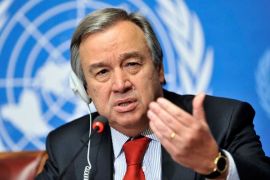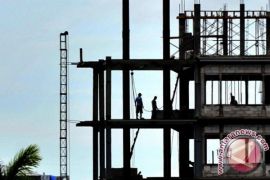During the year, Indonesia`s economic indicators such as inflation, interest rates, foreign exchange reserves and others were considered to be improving. According to the Indonesian Chamber of Commerce and Industry (Kadin), these indicators showed that Indonesia`s macro economic conditions were conducive to business developments.
The World Bank estimates that Indonesia`s inflation at the end of 2011 will stand at 3.6 percent (year-on-year/yoy). "The World Bank projection for 2011 inflation is 3.6 percent (yoy), certainly with a sustained increase in the price of components that are vulnerable to shocks," World Bank Lead Economist for Indonesia Shubham Chaudhuri said.
In the meantime, Bank Indonesia (BI) recorded that Indonesia`s foreign exchange reserves in the year ended on November were recorded at US$111.32 billion. Though it fell from US$113.96 billion the month before, yet it was enough to finance imports.
"The foreign exchange reserves are enough to finance imports and repay the government`s foreign debts for 6.4 months," the head of Bank Indonesia`s public relations bureau, Difi A Johansyah, said.
Bank Indonesia (BI) has also lowered its key rate by a total of 75 basis points since October 2011.
Regarding the economic growth in 2011, the World Bank has predicted that Indonesian economic growth in 2011 would reach 6.4 percent. "Indonesian economy remains strong at a good position to face external turmoil, because its growth in 2011 is predicted to remain at the level of 6.4 percent," World Bank lead economist for Indonesia, Subhan Chaudri, said in the Indonesia Economic Quarterly.
He said Indonesian real economy remained strong in the third quarter of 2011 with the year on year Gross Domestic Product rose by 6.5 percent in the three consecutive semesters. Besides, private consumption growth also remained strong like in the real export, although it dropped a bit in the second quarter following the global economic situation.
Although the foreign direct investment (FDI) slowed down in the past quarter, it was relatively strong and much bigger than the average FDI in the past two years.
And therefore he said the economic growth in 2011 was predicted to be around 6.4 percent.
Kadin Chairman Suryo Bambang Sulisto told a press conference on Wednesday that Indonesia`s economic growth this year was predicted to be high while the inflation rate was relatively low in line with the improving business tendency.
Therefore, in line with the BI step to cut its rate to 6 percent, Kadin expressed hope that banks would lower their lending rates in 2012 to the 8 percent level.
"I think the 8 percent level is still realistic to be achieved. This should be achieved through the hard work of the government," said Suryo adding that it could not be understood if the BI Rate had been lowered but the landing rates were still high.
Regarding the economic growth in 2012, Suryo Bambang Sulisto said Kadin had predicted that it would slightly be lower than that in 2011, namely at a range between 6.2 and 6.4 percent.
If the government did not take anticipatory steps, global crisis will have heavy impacts on Indonesia`s economic growth, so that the growth in 2012 will likely be lower than that in 2011.
Kadin also revealed its macro economic indicators for 2012, namely inflation at a range of between 3.5 and 5.5 percent, crude price at US$90 per barrel, benchmark rate at 6.0 percent, poverty at 11.7 percent, rupiah exchange rate at a range of between Rp8,900 and Rp9,100 per US dollar and unemployment rate at 6.3 percent.
"The global crisis will obviously affect Indonesia so that the government should take anticipatory steps in the face of its negative impacts," Suryo said.
On the other hand, Indonesia`s achievement in reaching an investment grade status indicated its strong macro economic fundamentals. The World Bank itself has hailed this achievement.
"The success of Indonesia to regain its investment grade status reflected its strong economic fundamentals that the government has successfully developed in the last ten years," the World Bank said in press released last week.
Even during the 2008-2009 global economic crises, Indonesia was able to withstand turmoil and to maintain its economic growth amid the downward trend of the global economic growth.
On December 15, 2011, International rating agency Fitch raised Indonesia`s debt rating from "BB" to "BBB-" categorizing the country as investment grade which is good for long-term investment.
Chief economic minister Hatta Rajasa welcomed the raising of Indonesia`s debt rating to an investment grade by Fitch ratings agency saying it had boosted the government`s confidence.
"Our optimism for 2012 is increasing because we initially thought it would be achieved in 2012, not this year, so that the 2012 outlook will change, more confident, better as certain countries would use it as a reference for their investment," he said at his office here on Friday.
The investment coordinating board (BKPM) has set a target of investment for 2012 at Rp283.5 trillion consisting of foreign investment worth Rp204.1 trillion and domestic investment worth Rp79.4 trillion.
In this case, BI Governor Darmin Nasution said that investment which in 2011 recorded a growth of 7.7 percent, was expected to experience an increased growth of about 9.7 - 10.1 percent in 2012 which in turn would maintain the people`s purchasing power.
Kadin also expressed support to the government`s investment target of Rp283.5 trillion in 2012 to reach a total investment of Rp2,600 trillion in the country next year.
On the country`s investment target of Rp2,600 trillion to be reached up to 2012, Kadin Cchairman Suryo Bambang Sulisto said the figure would come from gross fixed capital formation or physical investment in the country which was expected to reach Rp2,300 trillion at the end of this year.
(T.A014/H-NG/O001)
Reporter: by Andi Abdussalam
Editor: Priyambodo RH
Copyright © ANTARA 2011











